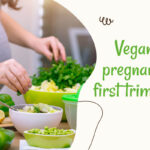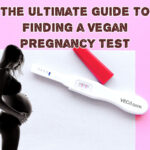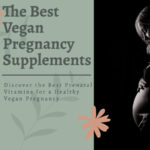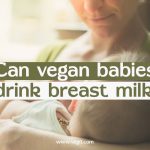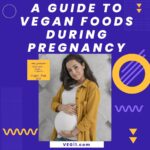Is vegan pregnancy safe?
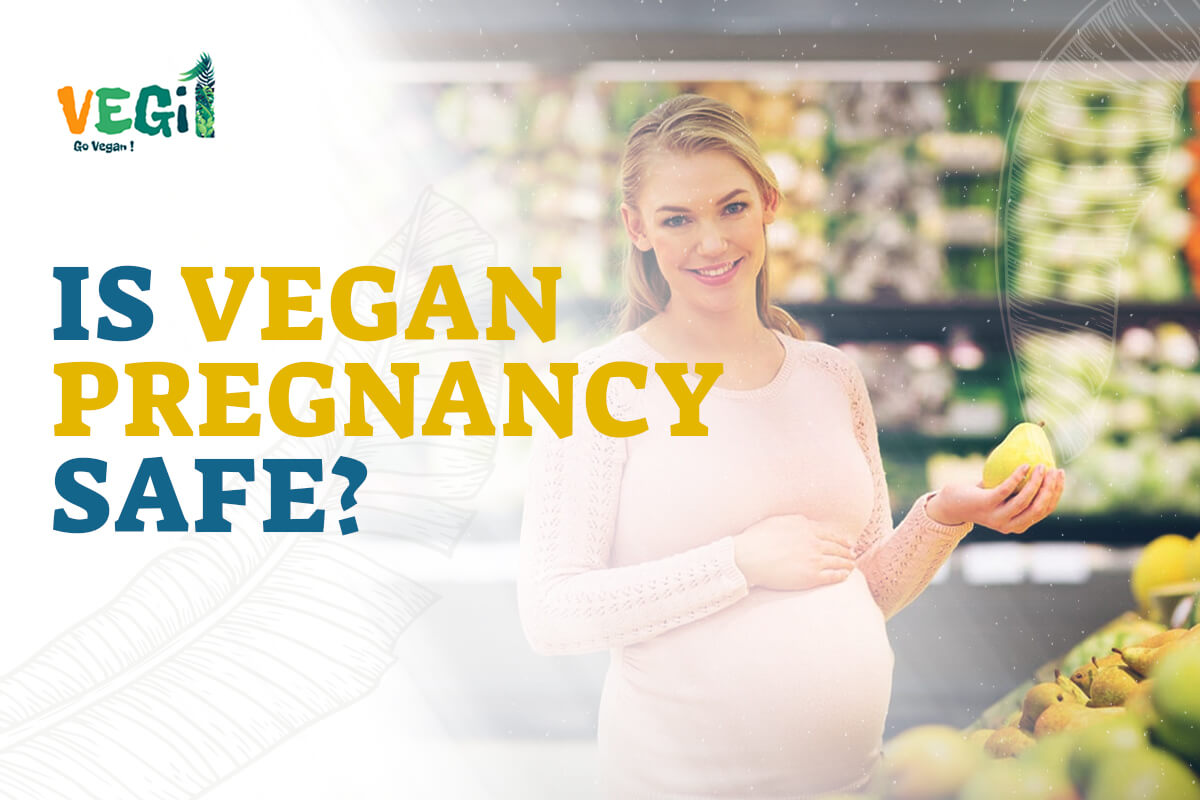
Pregnancy can be a time of great excitement and anticipation, but it can also be filled with many questions. Can you have a healthy and safe vegan pregnancy? Will you be able to get all the necessary nutrients while following a vegan diet? This article covers the basics of vegan pregnancy and provides you with the information you need to ensure a healthy and safe vegan pregnancy.
In this article you will read:
Introduction – What is a Vegan Diet and What are the Benefits?
A vegan diet excludes all animal products, including dairy, eggs, and honey. Vegans also do not consume any food that has been produced from animals, such as gelatin or lard. The vegan diet has many benefits, as it is typically high in fiber and low in cholesterol and saturated fat. Vegans also tend to eat more fruits, vegetables, and legumes, which are all high in essential vitamins and minerals.
The vegan diet is a great option for pregnant women looking for a way to get the necessary nutrients while keeping their health in check.
However, there are some things to keep in mind when considering a vegan diet during pregnancy.
Nutrients You Need During Pregnancy
When following a vegan diet during pregnancy, it is important to get all the necessary nutrients. Pregnant women need more vitamins and minerals than they did before they became pregnant, and a vegan diet can provide these nutrients in a variety of ways.
The most important vitamins and minerals for pregnant women are folate, calcium, iron, and vitamin B12. Pregnant women should also aim to get enough omega-3 fatty acids, zinc, and vitamin D. Folate is especially important for preventing neural tube defects in babies.
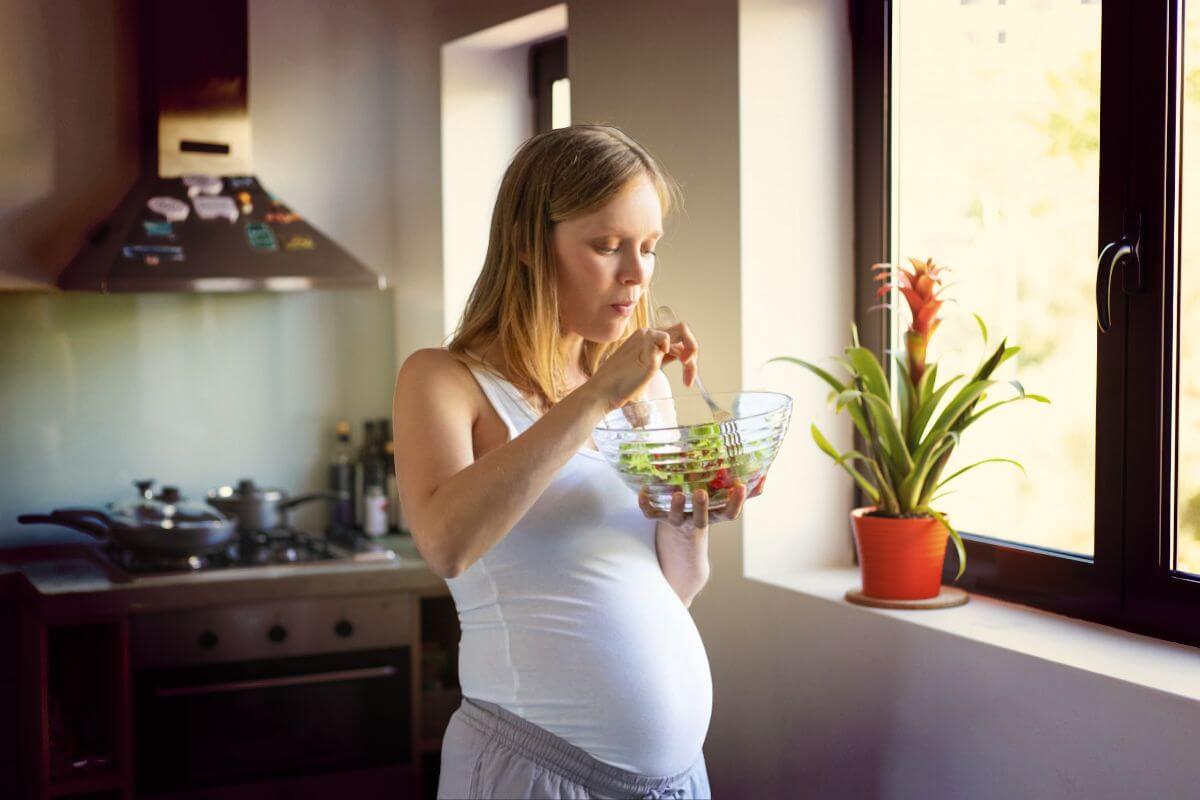
Vegan Diet Risks During Pregnancy
There are some risks associated with a vegan diet during pregnancy.
vitamin B12
Vitamin B12 is essential for neurological development in babies, so it is important to supplement with a vegan source of vitamin B12 if you are following a vegan diet during pregnancy.
I introduced plant sources of vitamin B12, I in this article”What Foods Are High in B12 Vitamin For Vegetarians and Vegans “;
Omega-3 fatty acids
Omega-3 fatty acids are also important for pregnant women, as they are essential for fetal development. To make sure you get enough omega-3 fatty acids, look for fortified vegan foods such as vegan milk , as well as take a vegan omega-3 supplement.
This post will introduce you to all plant sources of omega-3 and fatty acids : Foods High in Omega 3 for Vegetarians and Vegans
Vitamin D
Vitamin D is another important nutrient, as it helps the body absorb calcium and is necessary for healthy bones.
Iron
Iron is also important, as it helps red blood cells carry oxygen throughout the body.
Vegan diet during pregnancy
Many people criticized a vegan diet during pregnancy because they believe when you are vegan you can’t get nutrients and this is not good for the baby. Because pregnant mothers should have a full of zinc, vitamin B12, omega-, iron, and calcium meal plans. Also during pregnancy, you should use folic acid. But vegan food doesn’t contain this vitamin and mineral.
In my opinion, you will be satisfied with this diet, because this lifestyle decreases postpartum depression and maternal or infant mortality.
If you have a planned based diet and limited sugar you can protect yourself from safeguarding gestational diabetes. Also, you can have a healthy vegan diet and Prevent weight gain during pregnancy.
Many mothers have Constipation during pregnancy, vegan foods are a rich source of fiber and prevent this problem. Also, if someone has a rich blood pressure during pregnancy and veganism can help them with spending pregnancy.
When you want to start a vegan diet and you have a plan for pregnancy, I suggest you use a dietitian specializing in guiding and protecting your baby during Vegan pregnancy.
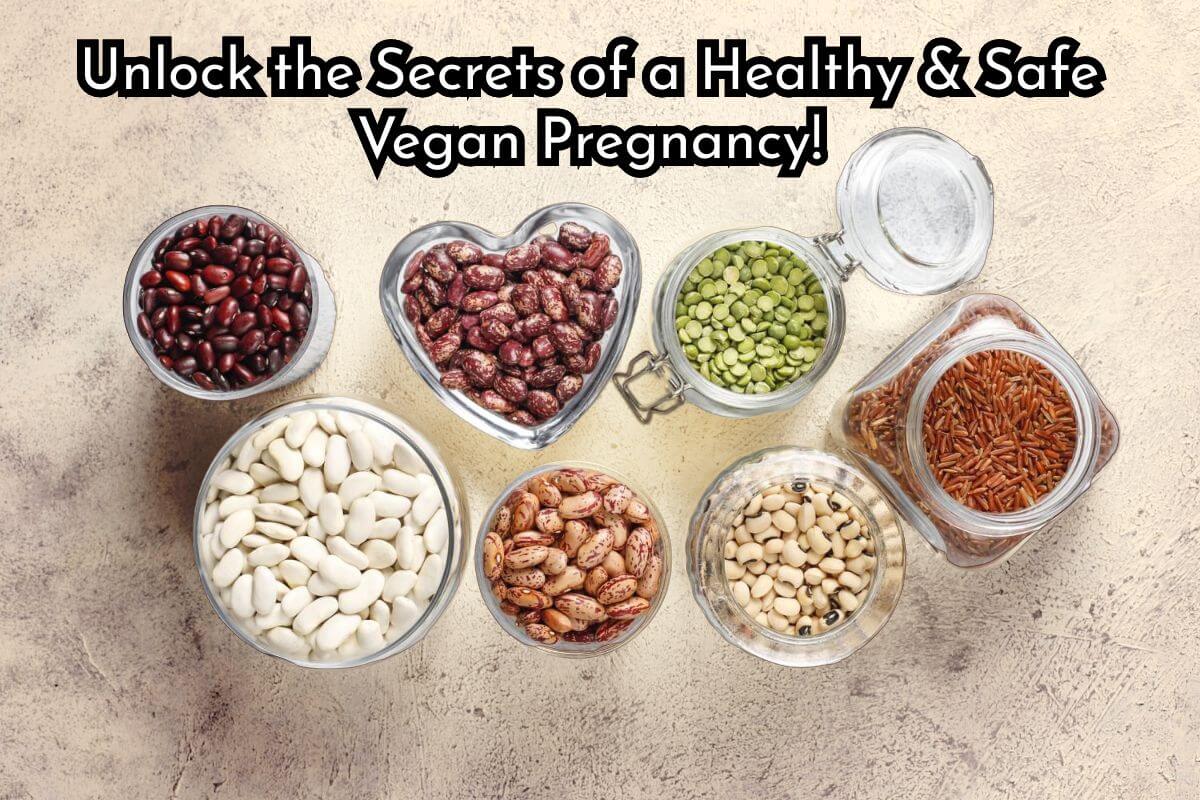
What concerns are there for pregnant women following a vegan diet?
It’s wonderful news that a woman who is on a vegan diet has become pregnant! However, pregnant women always need to be mindful of their nutritional intake. As a vegan, the challenge is even greater, since it’s important to make sure that she is getting all the plant vitamins, minerals, and vegan nutrients that she needs. Pregnant women need extra doses of iron, calcium, folic acid, and vitamin B12, which are all essential for the development of her baby. It can be difficult to get all these nutrients from a purely plant-based diet, so it’s important to supplement with vegan-friendly supplements. Additionally, she should be sure to eat a variety of fruits, vegetables, nuts, and seeds to make sure she is getting a complete range of nutrients. With proper nutrition and the right supplements, she can ensure that she and her baby are both healthy and happy.
So a woman who is on a vegetarian diet is pregnant. What health concerns are there for him?
– Ensuring adequate protein intake
– Monitor iron levels
– Ensuring adequate calcium intake
– Ensuring adequate intake of B12 and D vitamins
– Regular monitoring of fetal growth and nutrition
How to Ensure Proper Nutrition on a Vegan Diet During Pregnancy
To get all the necessary nutrients while following a vegan diet during pregnancy, it is important to make sure you are eating a wide variety of foods. A balanced vegan diet should include plenty of fruits, vegetables, legumes, nuts, and seeds. Be sure to choose vegan sources of calcium, such as fortified almond milk, tofu, and leafy greens.
How to Get Enough Protein on a Vegan Diet
Protein is an essential nutrient during pregnancy and can be difficult to get on a vegan diet. The best way to make sure you’re getting enough protein is to include a variety of protein-rich foods in your diet, such as beans, nuts, seeds, and tofu. You can also supplement your diet with vegan protein powders and bars.
You should also focus on getting enough protein on a vegan diet. Good sources of vegan protein include beans, nuts, seeds, and tempeh. Eating a variety of plant-based proteins will ensure you get all the essential amino acids your body needs.
How to Find Support During a Vegan Pregnancy
It can be helpful to find support during your vegan pregnancy. You can start by talking to your healthcare provider about your vegan diet and any concerns you may have. You can also join online communities and forums for vegan moms or connect with local vegan support groups in your area.
Tips for Eating a Healthy, Safe, Balanced Vegan or Vegetarian Diet During Pregnancy
- Eat a variety of foods, including whole grains, legumes, nuts, seeds, fruits, and vegetables.
- Avoid processed foods, such as vegan “meats” and vegan “cheeses.”
- Supplement your diet with vegan prenatal vitamins to ensure you’re getting enough of the essential nutrients.
- Stay hydrated.
- Eat smaller, more frequent meals.
- Get enough sleep.
- Exercise regularly, if approved by your healthcare provider.
Foods That Should Be Avoided During a Vegan or Vegetarian Pregnancy
When following a vegan or vegetarian diet, certain foods should be avoided. Processed vegan meats and cheeses are generally not recommended, as they can contain large amounts of sodium, saturated fat, and preservatives. Alcohol should also be avoided, as it can increase the risk of birth defects.
It is also important to avoid unpasteurized cheeses and raw or undercooked eggs, which can contain harmful bacteria. Additionally, caffeine should be avoided, as it can increase the risk of miscarriage.
Vegan and Vegetarian Pregnancy Resources
There are many resources available for vegan and vegetarian moms-to-be. Here are a few that may be helpful:
- The Vegetarian Resource Group
- The Vegan Pregnancy and Parenting Guide
- The Vegetarian and Vegan Pregnancy Survival Guide
- Vegan Health
- The Vegetarian Nutrition Dietetic Practice Group
- Vegan.com
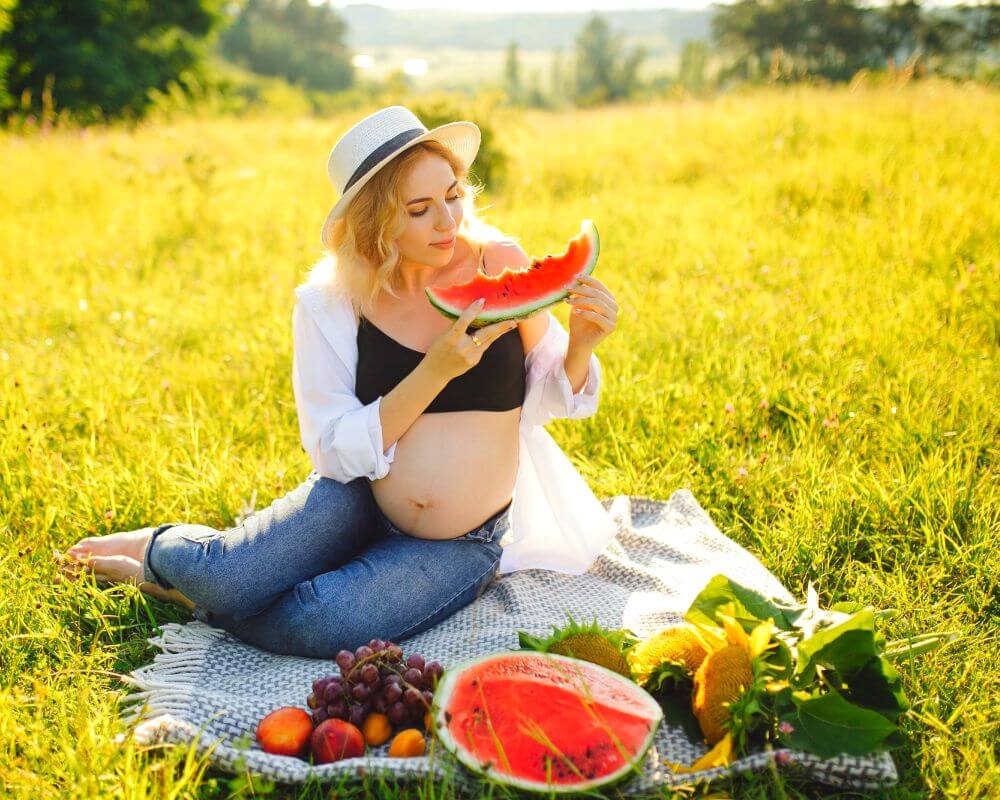
FAQ Vegan pregnancy+ answer
1) Do Vegans have healthy babies?
If you have a rich source of nutrients diet on vegan pregnancy, you spend pregnancy without risk and you give birth to a healthy baby.
2) Do Vegans have more miscarriages?
No, there is no evidence that vegans have more miscarriages than non-vegans. Some studies have suggested that diets higher in plant-based foods may be associated with a lower risk of miscarriage, but this has not been firmly established.
3) Do Vegans have more birth defects?
No, vegans do not have more birth defects than non-vegans. According to a review of several studies, there is no difference in the rate of birth defects between vegans and non-vegans.
Conclusion
Going vegan during pregnancy can be a great way to ensure you and your baby are getting enough of the essential nutrients. It is important to be aware of the potential risks, such as not getting enough of certain nutrients, and to plan ahead to make sure you are eating a healthy and balanced diet. Additionally, make sure to find support and ask questions if you have any concerns.
If you want to learn more about vegan diet and pregnancy, follow the posts of this blog and share it with your friends if it is useful. With some knowledge, planning, and support, you can have a healthy and successful vegan pregnancy.


